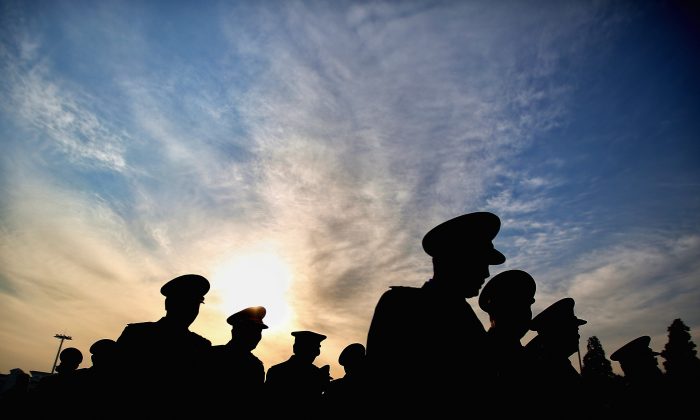After the Chinese Communist Party (CCP) announced proposals to revise its constitution, the provision about eliminating term limits for its leader got everyone talking.
But there is another critical change with repercussions for the Party in the years to come: the constitution will list a new state organ, called the Supervision Commission, to do the work of monitoring state bureaucrats for corruption. Of the 21 proposals announced by the CCP, 11 concerned the Supervision Commission.
A New Corruption-Fighting Organization
After current leader Xi Jinping took power in 2012, he launched a sweeping anti-corruption campaign to purge the Party of misbehaving officials, with the Party agency, the Central Commission for Discipline Inspection (CCDI) spearheading investigations into their malfeasance. The campaign continues to this day.
Now, the Supervision Commission, an agency under the structure of the state, rather than Party bureaucracy, will become the country’s “highest supervisory body,” according to state media. It will have oversight over all state employees, expanding beyond the CCDI’s breadth to include not just government officials, but workers in state-owned companies, the education system, healthcare system, and more.
The Supervision Commission will share responsibilities with the CCDI. It will be headed by a director—who serves no more than two consecutive terms—a deputy director, and committee members.

Last year, the regime rolled out test phases of the Supervision Commission in the capital of Beijing, Shanxi Province, and Zhejiang Province.
In Beijing alone, the number of Party members under its purview went up from 210,000 to one million, according to state media. About 770 officials were transferred from other CCP departments to staff the new commission.
During investigations, a new “liuzhi” system, will be put in place for serious cases, where suspects will be detained for three to six months. If the suspect is sentenced on charges later—with the lack of rule of law under the CCP, suspects are almost certain to be charged—the time spent in detention will count towards the prison sentence.
In addition to those locations and the central office, the regime plans to expand the Commission to the entire country at provincial, city, and county levels this year.
‘Political Corruption’
In a November 2017 article, state mouthpiece Xinhua noted that the Commission is a “political organ,” as opposed to being merely an administrative or judicial agency. China observers noted the peculiar description as a suggestion that the Commission would focus on “political corruption”—those in the Party who threaten to usurp power from the ruling faction. Xi’s anti-corruption campaign targeted many officials who belonged to an opposition faction loyal to former Party head Jiang Zemin. Some of the key Jiang faction officials even planned a coup.
Around the same time, the former anti-corruption czar who headed the CCDI, Wang Qishan, penned an article published in the CCP’s mouthpiece newspaper, People’s Daily, stating that political corruption was the worst kind of corruption.

Political commentator Xia Xiaoqiang believed Wang’s comments hinted at the Xi leadership’s anti-corruption goals for the future.
Who Will Be The Next Anti-Corruption Czar?
The Commission’s director has yet to be announced. But some have speculated that since the current provincial directors at the test offices are also the provincial CCDI directors—Party officials can have multiple posts—the current head of the central CCDI, Zhao Leji, could be the best candidate.

However, some observers have also thrown around Wang Qishan’s name, since he was Xi’s right-hand man. Reuters, citing insider sources, said Wang will become vice chair with a portfolio focused on ties with Washington. But China analyst Chen Pokong said in a recent YouTube video that if Wang were also given this task, the Commission would seem more like an independent investigative body—since Wang is an ordinary Party member who, until recently, did not have his name associated with any government post.
Personnel appointments will be formally announced by the CCP when the rubber-stamp legislature gives approval to the leadership’s decisions in March.
Qin Yufei, Ling Yun, and Luo Ya contributed to this report.
From The Epoch Times
Recommended Video:

